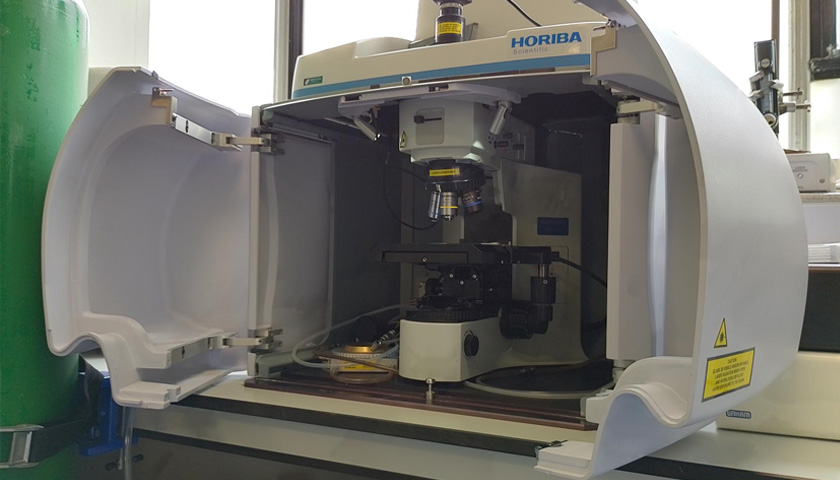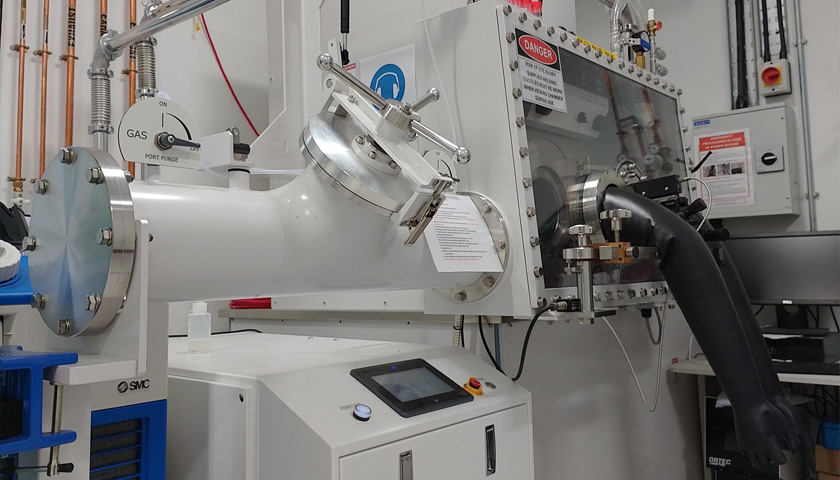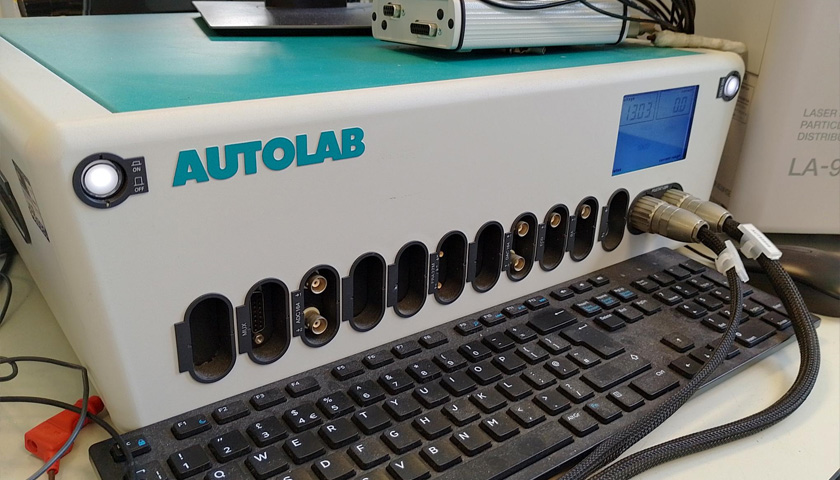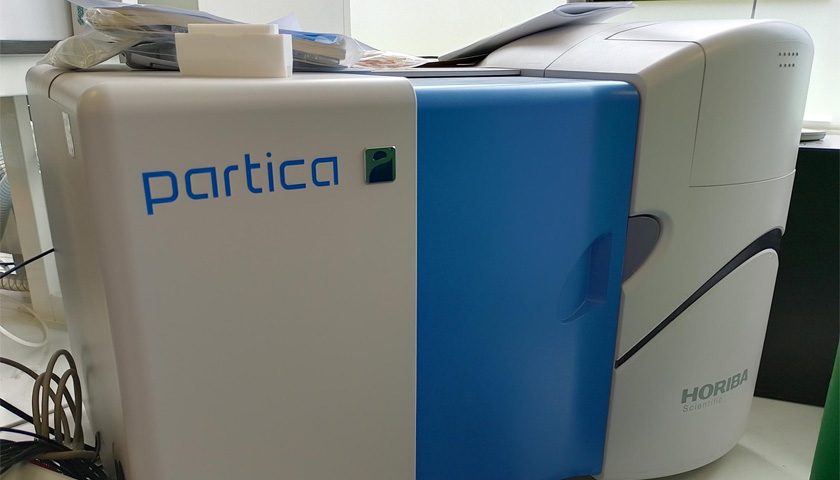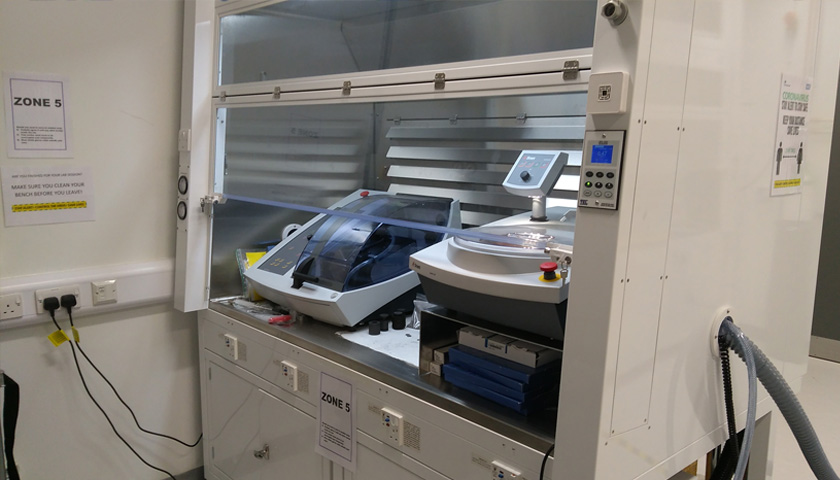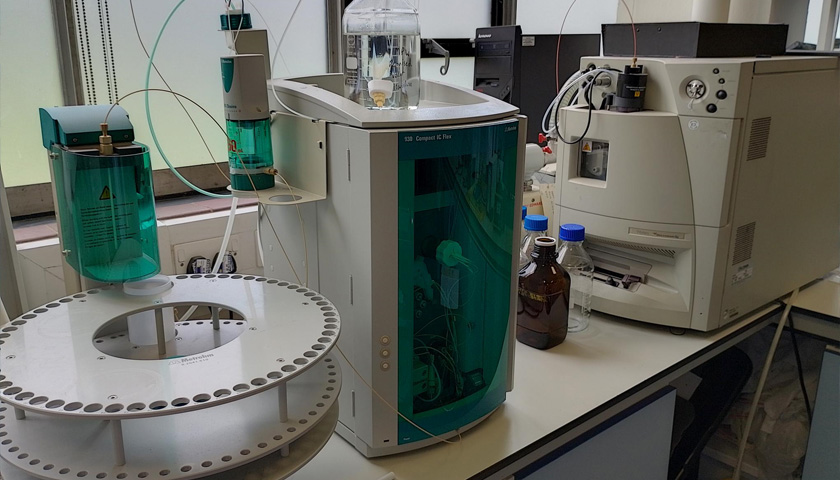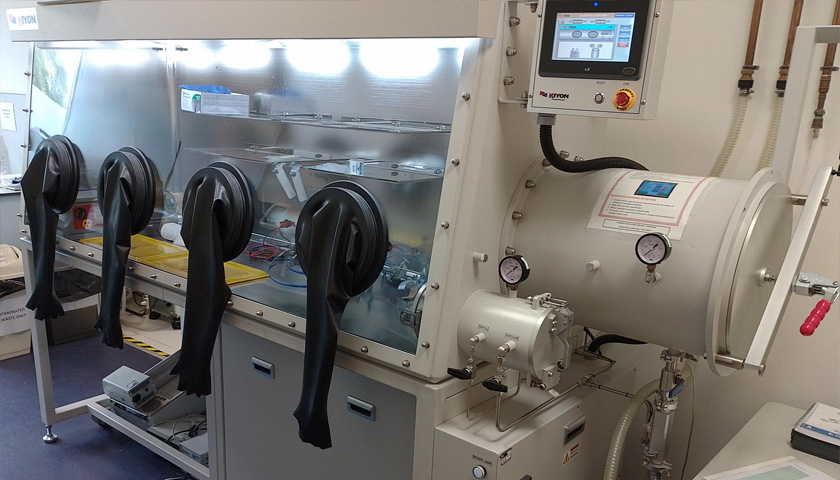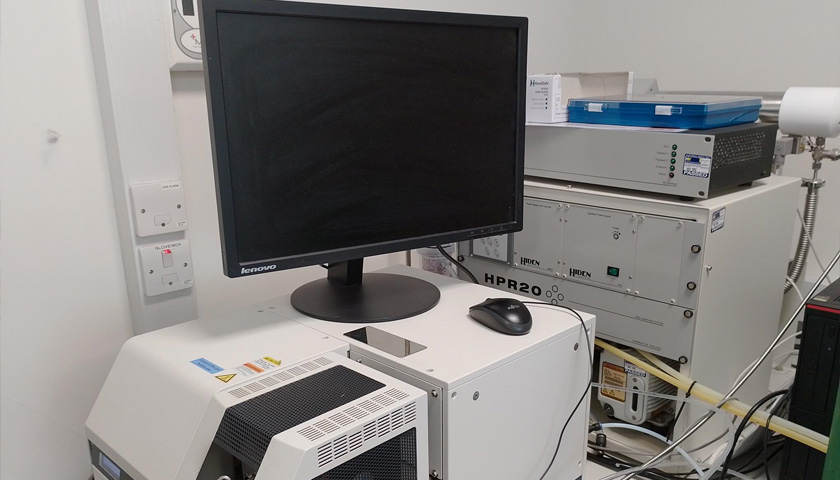UTGARD laboratory is a unique facility within the UK higher education landscape focussing on accelerating UK spent nuclear fuel research within the key areas of disposal, reprocessing and future fuels.
About the Lab
UTGARD laboratory is a ~120 m2 process chemistry laboratory within the School of Engineering. Rated to the highest level of university open-source radiation protection, UTGARD allows for the handling of a wide variety of radioactive isotopes, including (but not limited to): β/γ active fission products, uranium, thorium and low level alpha tracers.
The laboratory is separated into two distinct phases:
UTGARD Phase I is equipped with a range of instruments for the provision of thermodynamic and kinetic data to underpin both fundamental and application driven research (including scale up) in recycle and waste management. Specifically, behavioural studies of α/β/γ active materials under a range of conditions relevant to the back end of the fuel cycle – including wet/dry interim storage, geological disposal and new reprocessing routes, can be carried out using the laboratory suite of equipment.
UTGARD Phase II is a new university facility for simulated spent nuclear fuel (SIMFUEL) fabrication and characterisation. UTGARD Phase II enables research into the development of new, advanced sintering routes for the fabrication of SIMFUELs with porosities, fission product loadings, and defect microstructures that better simulate those of real spent nuclear fuel. UTGARD Phase II specifically focuses on oxide SIMFUELs – although, with an eye to future fuel cycles, including MOX, ATF’s and ThO2 based fuels.
Research Achievements
Operating for close to 9 years, the laboratory has supported major UK/European consortium programmes on:
- Engineering and Physical Sciences Council (EPSRC) funded programmes on the storage and disposition of plutonium - TRANSCEND (Transformative Science and Engineering for Nuclear Decommissioning) and DISTINCTIVE (Decommissioning, Immobilisation and Storage solutions for Nuclear waste Inventories)
- UK HMG and National Nuclear Laboratory (NNL) funded programmes on advanced nuclear fuel production and recycle - ATLANTIC (Accident Tolerant fuels In recycling), NIP (The Nuclear Innovation Programme) and AFCP (The Advanced Fuel Cycle Programme)
- EURATOM/Horizon funded programmes on safety in the European grouped actinide extraction process – SACSESS (Safety of Actinide Separation Processes, GENIORS (GEN IV Integrated Oxide fuels Recycling Strategies
- A UK HMG and National Nuclear Laboratory (NNL) funded programme on advanced nuclear technologies – ANSIC (Advanced Nuclear Skills Innovation Campus)
- EPSRC funded Centres for Doctoral Training and nuclear skills development – NGN (Next Generation Nuclear), GREEN (Growing skills for Reliable Economic Energy from Nuclear) and SATURN (Skills And Training Underpinning a Renaissance in Nuclear)
With regards to the latter, UTGARD has hosted over 10 PhD researchers and their associated projects through these centres, producing future generational experts in areas from nuclear decommissioning to fuel manufacture.
Most recently, UTGARD, in association with the National Nuclear Laboratory, has become part of the Uranics Innovation Centre (UIC), an industrial and academic partnership to support the development of front-end fuels capabilities in the UK.
With the opening of UTGARD II in 2020, and through funding from the National Nuclear User Facility (NNUF), UTGARD received over 20 expressions of interest and hosted 9 projects from 7 different universities over a 3 year period, with projects covering a range of research areas including the creation of simulated spent nuclear fuel pellets for hyperspectral imaging, the generation of accident tolerant fuels (silicides and nitrides) and novel sintering routes to next generation nuclear waste forms.
UTGARD laboratory is also open to organisations outside of the higher education sector, offering either larger collaborative projects or simple short consultancy opportunities.
History
- 2015 – UTGARD Laboratory funded by a £1 million grant from the UK Department of Energy and Climate Change (DECC) in association with the National Nuclear User Facility (NNUF)
- 2016 – Laboratory opened to internal and external users, including the first NNUF collaboration with Cambridge University.
- 2019 – UTGARD Phase II funded by ~£700,000 grant from the Engineering and Physical Sciences Research Council (EPSRC) as part of the National Nuclear User Facility (NNUF)
- 2020 – UTGARD Phase II open to internal and external users
- 2021 – First external NNUF user in January
- 2024 – Completion of the NNUF programme with over 9 external projects successfully delivered in the laboratory



